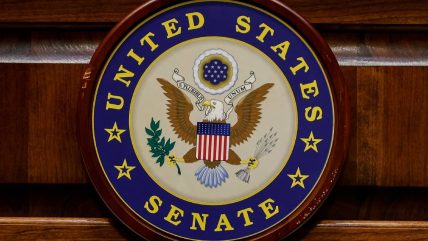
The US Senate has successfully passed a bill intended to establish a regulatory framework for stablecoins, marking a pivotal advancement for the cryptocurrency sector.
Guiding and Establishing National Innovation for US Stablecoins (GENIUS) Act was introduced by Senator Bill Hagerty. Supported by a bipartisan group including Senators Kirsten Gillibrand, Cynthia Lummis, and Angela Alsobrooks, the proposed law aims to regulate payment stablecoins while ensuring consumer protection and national security.
The legislation, initially passed by the Senate Banking Committee in March under Chairman Tim Scott’s leadership, garnered support from both parties, passing with a 68-30 vote.
Chairman Scott said: “With the GENIUS Act, we’re bringing clarity to a sector that’s been clouded by uncertainty and proving that bipartisan, principled leadership can still deliver real results for the American people. This did not happen by accident.
“It happened because we led – across the aisle and with purpose. I’m especially grateful to Senator Hagerty for his leadership, as well as the hard work of many of my colleagues to get this across the finish line.”
For the bill to become law, it must now pass through the Republican-controlled House of Representatives before reaching President Donald Trump for approval. The proposed regulations require stablecoins to be backed by liquid assets such as US dollars and short-term Treasury bills.
Issuers would also be obligated to disclose their reserves’ composition each month.
Stablecoins serve as digital tokens designed to maintain a consistent value, typically pegged 1:1 with the US dollar, facilitating seamless transactions within the cryptocurrency community. The bill’s proponents argue that a clear regulatory framework could further integrate stablecoins into the financial system.
The crypto industry has advocated for regulatory clarity, highlighting that it could enhance stablecoin utilisation. In support of this endeavour, over $119m was spent backing pro-crypto candidates during last year’s elections, reported Reuters.
Previously, the House passed similar legislation which didn’t progress in the Democrat-majority Senate at the time.
President Trump has aimed to reform US cryptocurrency policies after receiving significant financial backing from the sector during his campaign. Bo Hines, leading Trump’s Council of Advisers on Digital Assets, expressed the administration’s goal to have stablecoin legislation enacted before August.
Congressional tensions regarding President Trump’s cryptocurrency initiatives have posed potential challenges to legislative progress, with some Democrats voicing concerns over Trump’s personal crypto ventures like $TRUMP coin and World Liberty Financial. Despite these controversies, the White House maintains there are no conflicts of interest due to Trump’s assets being managed in a trust.
Some Democrats remain wary that the current bill does not adequately restrict major tech firms from launching private stablecoins and lacks sufficient anti-money laundering safeguards against foreign issuers. As discussions continue, further revisions may occur in the House of Representatives.
Meanwhile, the Conference of State Bank Supervisors has urged for essential amendments to address financial stability concerns before any final version is legislated.






